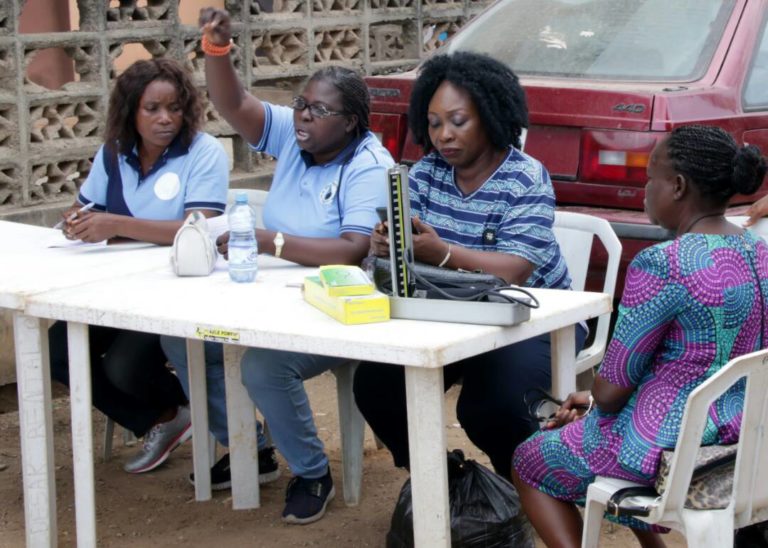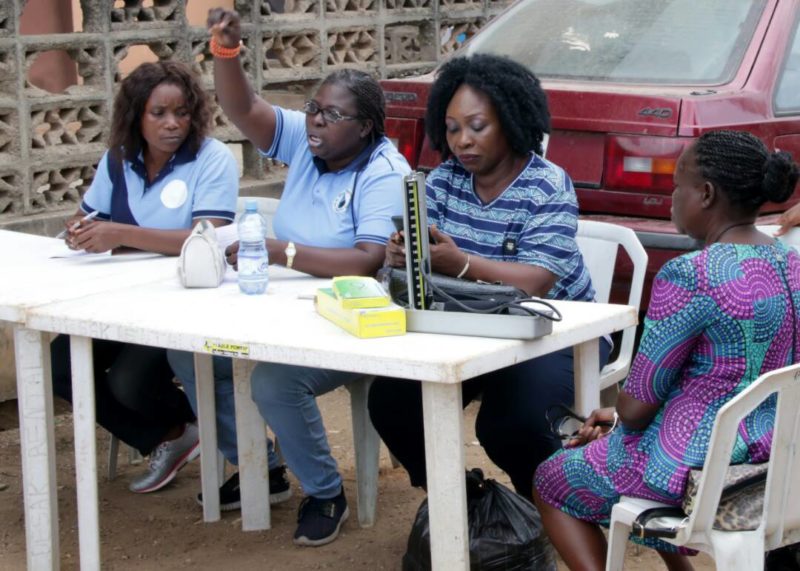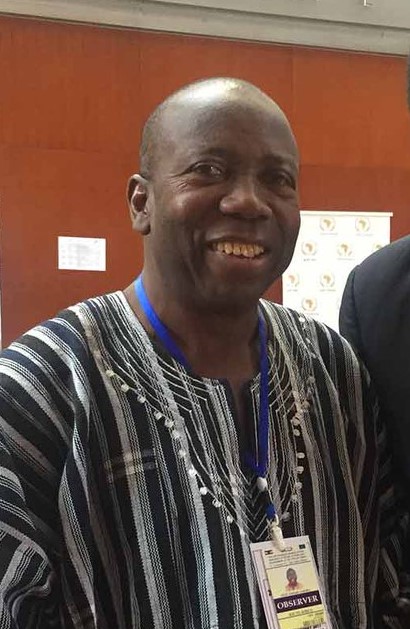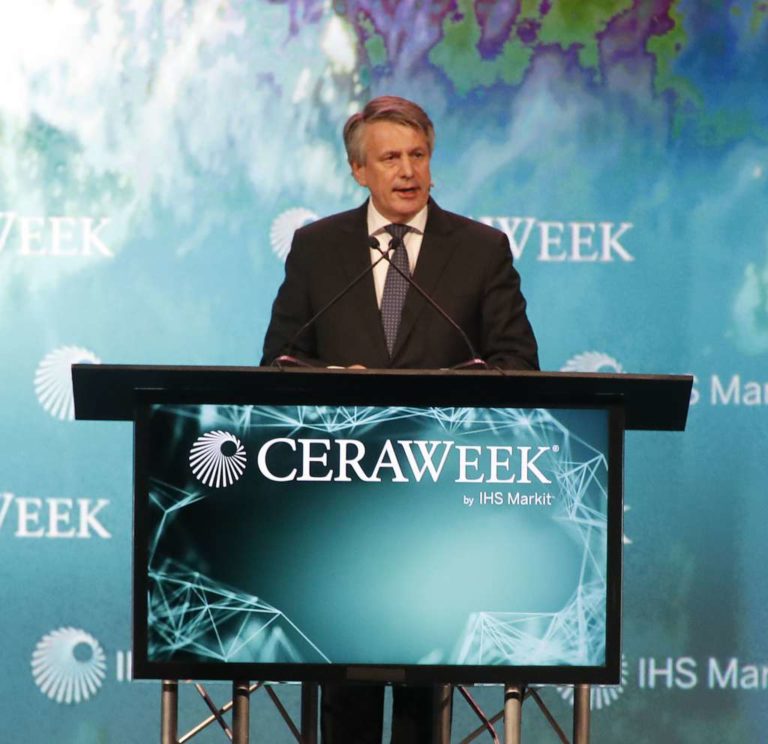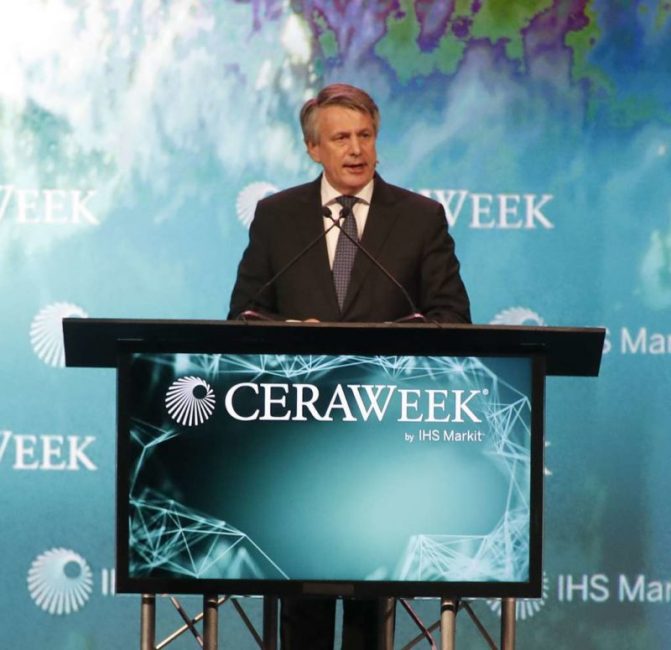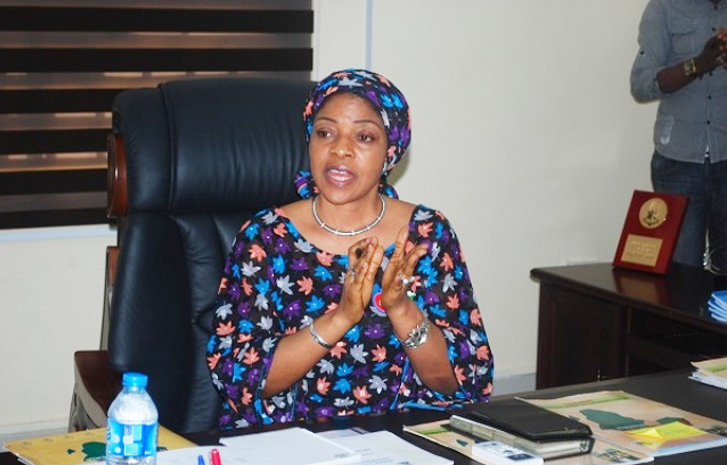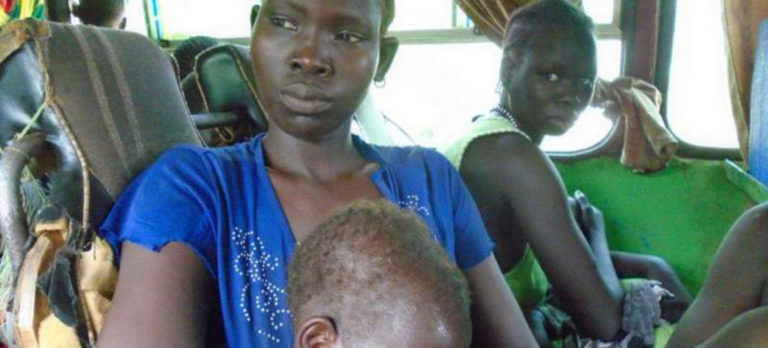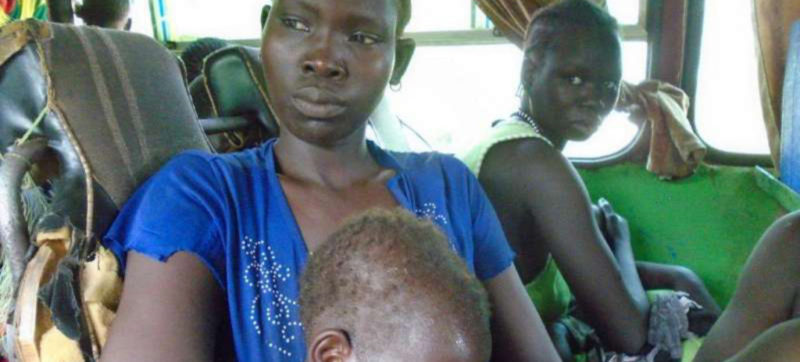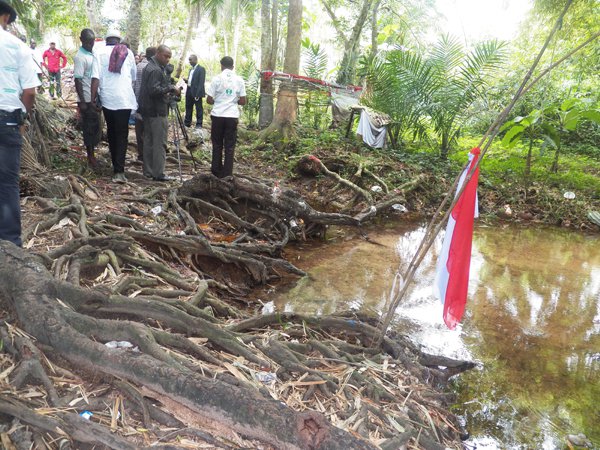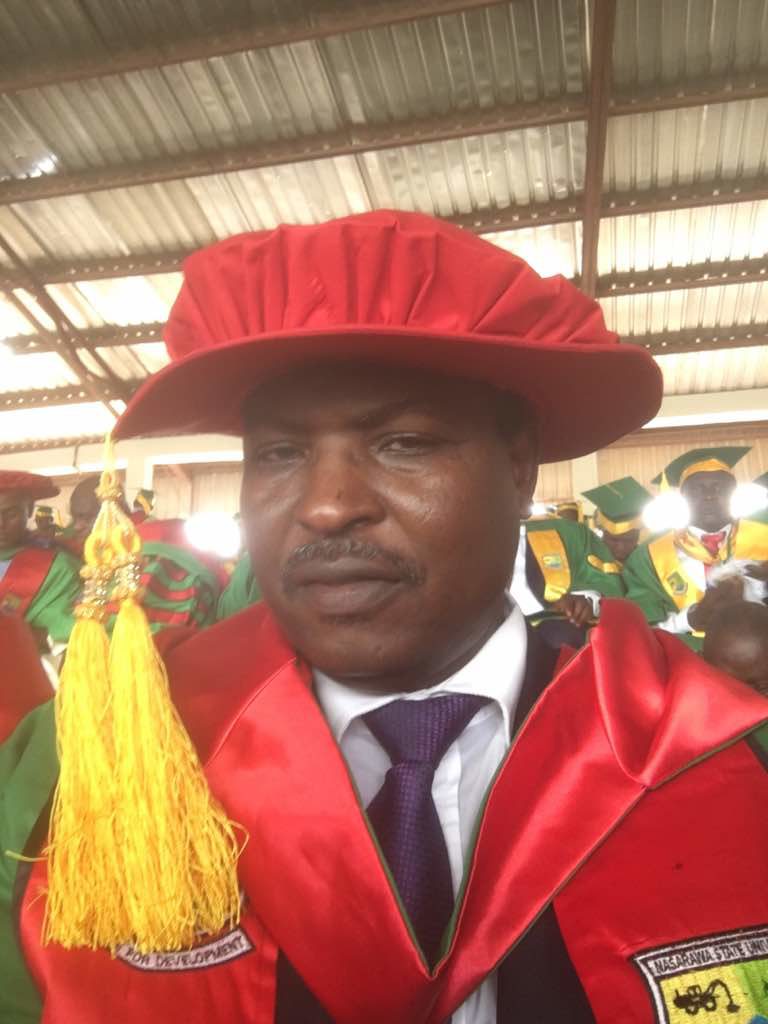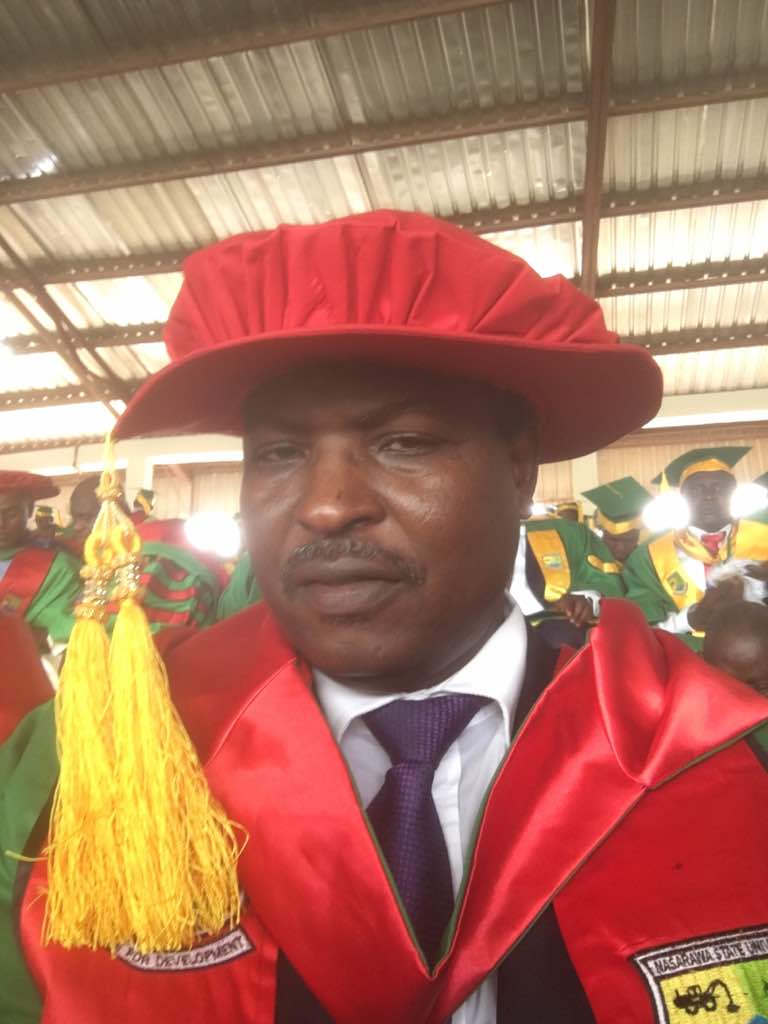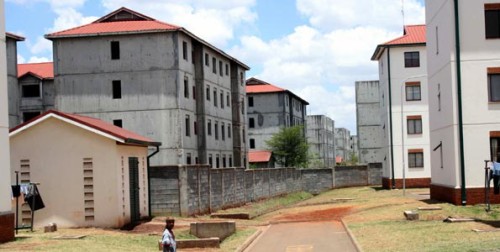The month of March, 2018 is here and, in less than 10 days from now, on Thursday, the 22nd the international community will be celebrating this year’s World Water Day on the theme: “Nature for Water.” The aim is to demonstrate the potential of nature-based solutions for water and how they can be considered for water management policy and practice.
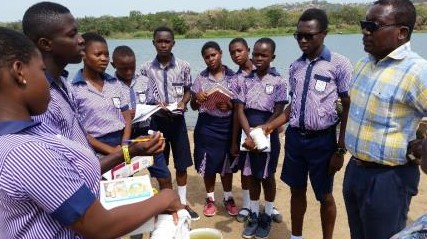
All over the world, preparations are on-going for a successful celebration that will highlight the importance of maintaining and protecting water ecosystems – such as forests, aquifers, river banks, lakes, wetlands and mangroves. This will ensure the continuation of their normal functioning that provide services including filtering and storing water for the benefit of humans and other life forms. However, when freshwater ecosystems are abused, they are unable to effectively perform these crucial functions.
In Ghana, the Day’s observance has begun earnestly with activities including school children monitoring the quality of water in the Weija Dam. The dam lies within the portion of the Densu River Basin in the Ga South Municipal Assemble of the Greater Accra Region. The socio-economic lives of the catchment communities such as Manhean, Galilea and Ngleshie Amanfro revolve around the dam. It supports a vibrant fishing industry in the area, serves as a source of water for some of the community members and also enable herdsmen to water their cattle.
The 10 students selected from the Joy Academy School at Galilea are monitoring the water in the Weija Dam to ascertain its health or pollution status. They are using a simple Water Monitoring Kit to check for several things including thermal pollution or temperature of the water, the dissolved oxygen content, turbidity and PH. All of these, depending on the levels and density have implications for aquatic life and for human consumption. They further give an indication of the type and scope of human activities and how they are impacting the water.
The children will also be looking out for bio-indicators such as the presence of dragon flies or butterflies, which gives an indication of the environmental integrity of the entire water ecosystem.
The Densu River Basin Officer, Dr. Ronald Abrahams of the Water Resources Commission (WRC), assisted the children to conduct the monitoring at the river side. During that period, one could observe all kinds of human activities taking in the water body – women washing clothing’s and bowls, some dumping fish waste, others washing their feet, while others fetched water to take home, cattle could be spotted on the other side drinking from the river, while, fishermen were just lazing in their boats, as it was not yet time for them to go fishing.
Apart from monitoring the water in the Weija Dam, the children will also monitor treated piped borne water supplied to sections of the communities.
The results will be presented during the durbar to climax the Day’s celebration on Thursday, March 22nd at Manhean.
Prior to the trial monitoring, Dr. Abrahams and some members of the National Planning Committee for World Water Day celebration in Ghana, had interacted with and sensitised the children together with about 50 other students on the theme for the celebration.
The Chairperson of the Committee, Mrs. Adwoa Dako, said the Day was instituted during the United Nations Conference on Environment and Development in 1992 also known as Rio de Jeneiro Earth Summit. She said the purpose is to draw attention to the importance of freshwater ecosystems and advocate for their sustainable management.
Dr. Ronald Abrahams introduced the Water Monitoring Kit to the children and took them through the monitoring process.
About a fortnight earlier, on Tuesday, February 27, the Day’s celebration was formerly launched at a media interaction organised by the Planning Committee, for a group of journalists and the Chief and elders of Ngleshei Amanfro and the surrounding communities.
Dr. Jonas Kpakpa Quartey of the Centre for African Wetlands, University of Ghana, Legon, briefed the gathering about the “Importance of the Health of Freshwater Ecosystems.” He said they are important for domestic uses and in supporting livelihood activities such as the local fisheries, irrigating farmlands, and providing raw materials for craft works and buildings.
Dr. Quartey added that healthy freshwater ecosystems also serve as vital sources for energy production, support recreation and tourism, and provide natural solutions including strengthening the resilience of an area or people to climate induced natural disasters.
He said freshwater ecosystems are threatened by rapid population growth, changes in land use, development of water infrastructure such as dams, industrial discharges, and dumping of rubbish and faeces. Dr. Quartey explained that these developments render freshwater ecosystems unhealthy, making the water unsafe for human consumption and aquatic life.
Additionally, unhealthy freshwater ecosystems, affect the livelihoods of people, foster food insecurity, retard economic growth, make people vulnerable to water related diseases, and increase water related natural disasters including droughts, floods and tropical storms. It could further lead to water scarcity, which may induce conflicts amongst communities, regions and countries in extreme cases.
Dr. Quartey stressed the need to protect and conserve freshwater ecosystems through effective management of freshwater sources. He called for sound management practices such as establishment of buffer zones around water bodies, avoiding use of chemicals in fishing, stopping deforestation and re-planting degraded areas, and discontinuing the conversion of wetlands.
A presentation on “The Role of the Community in securing our Water Bodies,” delivered on behalf of the Executive Secretary of the WRC, Ben Ampomah noted that livelihood associated activities such as improper household waste disposal, washing in water bodies, farming along river banks, improper fishing methods, illegal sand winning and illegal mining, all pollute water bodies.
He urged communities to develop coping strategies that involve local technological innovations, best practices and demonstrate practical knowledge in their livelihood activities to ensure efficient use of their water resources.
Quranchie Adama-Tettey of the Greater Accra Metropolitan Area (GAMA) Sanitation and Water Project presented highlights of the project, which is funded by the World Bank to the gathering. He said it seeks to increase access to improved sanitation and water supply within the area, in accordance with goal 6 of the Sustainable Development Goals (SDGs).
SDG 6 is on water and seeks to: “ensure availability and sustainable management of water and sanitation for all.” The second of its six targets aims to achieve by 2030, access to adequate and equitable sanitation and hygiene for all, and end open defecation, paying special attention to the needs of women and girls and those in vulnerable situations.
Mr. Adama-Tettey touched on the “Get a Complete Toilet Project,” packaged to assist households get their own toilet facilities at a discount rate of GH¢1,100. He said the purpose is to stop open defecation and its associated health risks, adding that “households with rooms already available for the facility to be fixed in will pay GH¢600, while those who require the complete facility will pay the full cost.”
He explained that “it is possible for people to make payments in installments, as the package comes with a flexible payment schedule for those who cannot pay cash down.”
The Assembly member for Galilea, Isaac Nelson Akrobotu called for more education on protecting the Weija Dam and its environs, stressing the need for the Assembly to enforce bye laws protecting water bodies.
For his part, Chief Nii Kwashie Gborbilor of Ngelsei Amanfro noted that dumping of rubbish and open defecation are issues in the area. He urged the people to take the sensitisation seriously and conduct themselves in a responsible manner, since it is for their own good.
“… these things create diseases for us and will affect our future, so let’s take all the words in good faith and join in the celebration of World Water Day and the climax durbar that we are privileged to be hosting on Thursday March 22nd,” he said.
At an earlier meeting with some members of the Planning Committee to discuss and plan towards the event, Nii Gborbilor stated, “… this year’s celebration should create in us a sense of value for water, to manage the resource well, use it wisely and protect it for our own well-being and for future generations.”
By Ama Kudom-Agyemang

